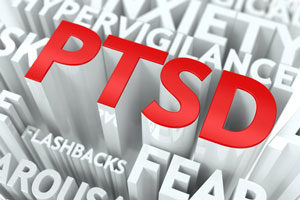“There is no greater agony than bearing an untold story inside you.”
– Maya Angelou
 Post-traumatic Stress Disorder (PTSD) involves a set of symptoms that can develop after a person experiences one or more scary, shocking, or life-threatening events. Examples of events that can lead a person to develop PTSD include: child abuse, military combat, domestic violence, sexual assault, car accidents, natural disasters, and being the victim of a crime. Not everyone who experiences a life-threatening event develops PTSD. Many factors play a role in determining who develops PTSD after a scary event and who does not. For now, just know that if you developed the symptoms, it does not mean you are weak—it only means that you developed the symptoms.
Post-traumatic Stress Disorder (PTSD) involves a set of symptoms that can develop after a person experiences one or more scary, shocking, or life-threatening events. Examples of events that can lead a person to develop PTSD include: child abuse, military combat, domestic violence, sexual assault, car accidents, natural disasters, and being the victim of a crime. Not everyone who experiences a life-threatening event develops PTSD. Many factors play a role in determining who develops PTSD after a scary event and who does not. For now, just know that if you developed the symptoms, it does not mean you are weak—it only means that you developed the symptoms.
The symptoms of PTSD can be intense and can interfere with your ability to lead your life. Symptoms can disrupt your ability to sleep, concentrate, work, and have intimate relationships.
How do you know if you have PTSD? I would suggest that you not try to diagnose yourself but see a medical or mental health professional to be sure. If you experienced one or more traumatic events and have one or more of the symptoms listed in each category below, you may have developed the disorder.
- Reliving the traumatic event. This can take the form of nightmares, flashbacks, or intrusive memories (something may trigger you to think about the traumatic event and then you can’t stop thinking about it). When reliving the event, you experience the same or similar feelings you had when the event was actually happening.
- Avoiding people, places, or events that trigger you to remember the traumatic event. You may avoid talking about the traumatic event.
- Feeling numb or withdrawn. You might avoid talking about your feelings, “numb out” with television or video games or drugs/alcohol, isolate yourself from others, or have difficulty feeling love or affection.
- A constant increase in emotional arousal and reactivity. This can involve feeling hyper-alert or afraid or “on edge” or “on guard” all the time, being easily startled or “jumpy,” having problems falling or staying asleep, feeling agitated or having angry outbursts, having difficulty concentrating.
- Differences in your moods or thought processes. This can include having difficulty remembering all or part of the traumatic event, negative changes in how you view the world or yourself, a distorted sense of guilt or blame about the event, feeling stuck in the emotions you felt when the event occurred, or losing interest in things you enjoyed before the traumatic event.
If you think you have PTSD, or even if you have some of the symptoms, it is important that you seek treatment right away because people who receive appropriate treatment soon after developing the disorder tend to have shorter recovery times.
I have helped many people along their journey of recovery from trauma, and I am available to help you, too. I have specialized training and experience working with combat veterans and survivors of domestic violence. I also have experience helping adult survivors of childhood abuse. I am passionate about helping people recover from trauma and lead a normal life again. In my work with traumatized clients, one thing I have observed is that everyone’s recovery process is different. Therefore, I do not use a one-size-fits-all approach to trauma recovery. Our work together may include some of the following:
- Learning what trauma is and how it affects the mind and body.
- Understanding that your symptoms are a normal reaction to an abnormal situation and do not mean you are “crazy.”
- Restoring your sense of safety in the world and sense of control over your life.
- Understanding how the trauma impacted your view of the world, your self-worth, and the way you relate to others.
- Learning to gradually trust other people again.
- Learning to set firm boundaries with others and have safe, healthy relationships.
- Telling me about the traumatic event(s) you experienced.
- Talking about your traumatic experience(s) until you reach a point when you don’t need to talk about it anymore.
- Reconnecting with other people, gradually, safely, and according to your own comfort level.
- Identifying your triggers that cause you to re-experience the trauma in the form of intrusive memories, flashbacks, or nightmares.
- Learning grounding skills to help you relax and not be on edge.
- Learn to recognize irritability or angry outbursts as a sign you are being triggered and learn to care for your own needs when that happens.
- Share your story (or parts of your story) with people you love.
- Advocating for yourself by choosing to confront someone who hurt you.
- Restoring justice by choosing to report a perpetrator to legal authorities.
- Forgiving as a way of letting go of your pain and anger.
- Sharing your story with other survivors or volunteering as a way of giving back.
I have a passion for helping people heal from painful events from the past. If you are a trauma survivor who is suffering, I want you to know that help is available. Whether you choose to reach out to me or to someone else, please reach out today. The road to recovery can be long, but you can reclaim your life.